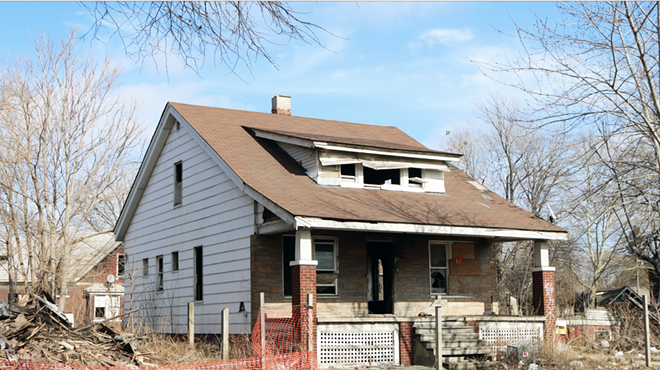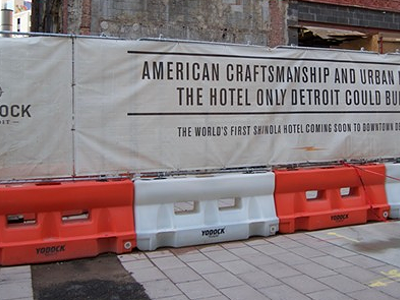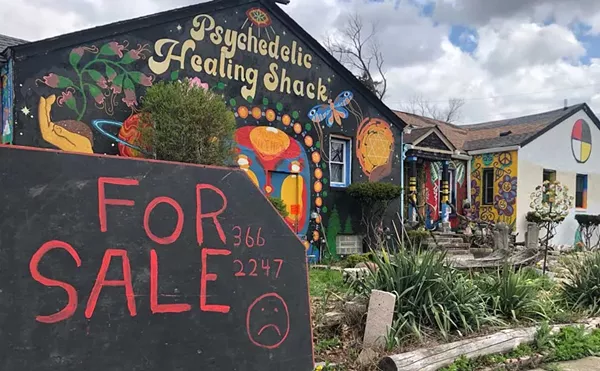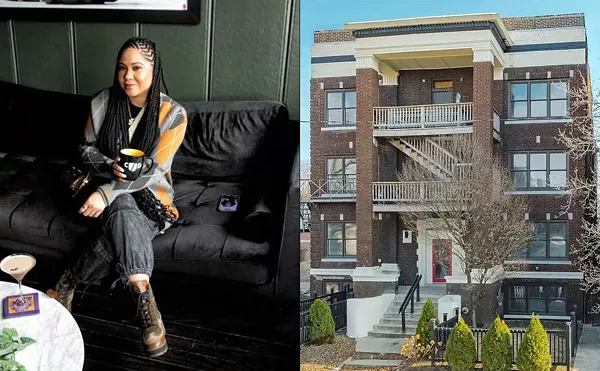64,000 Wayne County properties are years behind on their taxes and could be foreclosed

Audio By Carbonatix
[
{
"name": "GPT - Leaderboard - Inline - Content",
"component": "35519556",
"insertPoint": "5th",
"startingPoint": "3",
"requiredCountToDisplay": "3",
"maxInsertions": 100,
"adList": [
{
"adPreset": "LeaderboardInline"
}
]
}
]
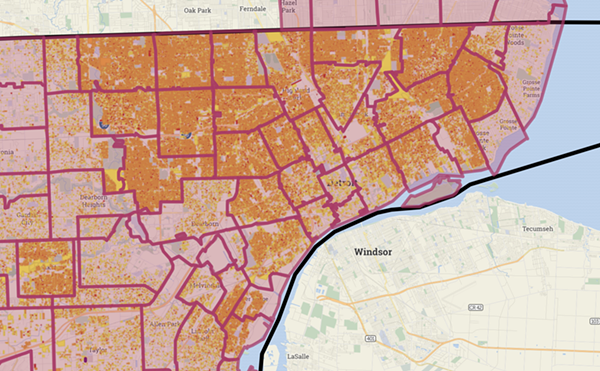
The tax foreclosure crisis in Wayne County is rolling right along, with another massive batch of properties at risk of being seized.
The 2016-2017 foreclosure cycle wraps up June 28, the date by which home owners with three years' worth of back taxes have to make payment arrangements with the Wayne County Treasurer's Office. The process began last fall with the issuing of some 26,000 foreclosure notices to homes where people live. Most people managed to reverse the process, but several thousand occupied homes are expected to miss this month's foreclosure redemption deadline and be entered into the county's tax foreclosure auction this fall.
But around the time of the auction, the 2017-2018 foreclosure cycle will be starting up. Freshly compiled data shows that, next year, up to 64,000 properties in Wayne County are at risk of being foreclosed.
That's according data mapping company Loveland Technologies, which used information from the Wayne County Treasurer’s tax payment portal to create a map of properties at least two years behind on their taxes.
"The 64,000 incoming foreclosure notices are pretty much as high as ever," says Loveland CEO Jerry Paffendorf. "When I put my name in for Treasurer during one of Detroit's peak auction years in 2015, the number of foreclosure notices for 2016 was about 70,000."
Paffendorf has been working on the foreclosure issue for years, and has come up with a proposal he thinks can solve the problem that leads to vacancy, blight, and displacement.
His plan involves bundling all foreclosed occupied homes into one not-for-sale block and passing it through the auction, after which authorized organizations like housing nonprofits and land banks can work with occupants to turn them into owners and preserve the properties. The city's foundations, in Paffendorf's vision, could put up the money needed for the treasurer to remove the occupied homes from the auction.
As Paffendorf sees it, the primary hurdle to stemming the tide of tax foreclosures is the fact that Wayne County benefits from the money made by selling occupied tax foreclosed homes at auction. Wayne County Treasurer Eric Sabree recently told Metro Times the county last year made $19 million selling such homes. The money, he said, was distributed to schools, libraries, and parks. The county's chief financial officer, however, downplayed the county's reliance on the money.
Still, Paffendorf says his vision accounts for this. Doing some division to figure the average price per home sold at auction, he expects the county is planning to bring in about $25 million from this year's housing auction. Paffendorf has suggested the foundations put up that dollar amount, and says they can eventually recoup some of their funds through occupants paying off back taxes.
If foundations can come together "to provide hundreds of millions of dollars to prevent the art at the DIA from being sold," he says, they can invest in helping Detroiters save their homes, because it "would have a much bigger impact on the [people] living in the city's neighborhoods."

